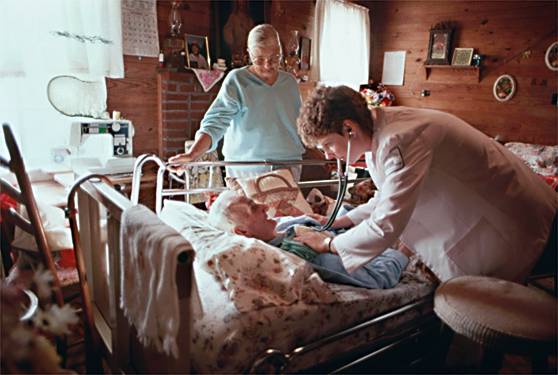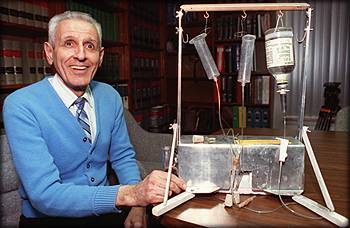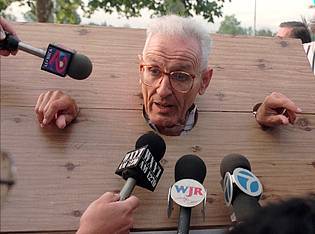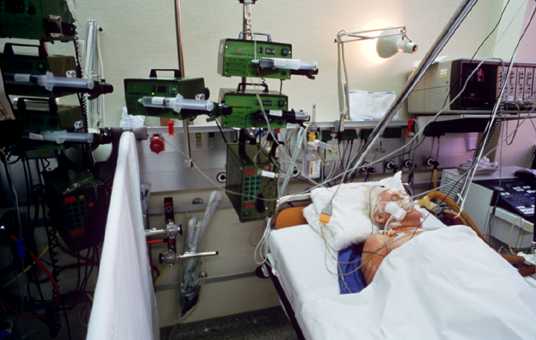Brevet 9-1
Dec./Jan. 2001-2002
Unedited
Outline:
C)Four
Facts:
(1)There are four types of euthanasia.
a-Active euthanasia
b-Passive euthanasia
c-Voluntary euthanasia
d-Involuntary euthanasia
(2)Doctor Kevorkian is famous for practicing euthanasia
a-Thanatron: Death Machine
b-At least, one hundred and thirty patients helped to die
c-Accused and found guilty
(3)Organizations that support euthanasia.
a-Holland legalized euthanasia
b-Hemlock group of doctors supported
c-Other organizations
(4)Religions against euthanasia
a-Islam believes it is a crime
b-Christianity found euthanasia as an act against God’s authority.
c-Judaism opposes it
(D) Analysis:
(1)Euthanasia is definitely mercy killing
a-It is practiced on terminally ill.
b- It relieves the suffering of people in pain
(2)Religions need to review decisions
a-Is life worth living when in pain?
b-Is suffering not an insult to our existence?
c- Aren’t machines against God’s authority?
(3)A person has the right to die in dignity.
a-Many lose joy in living, and life turns into hell for them and there loved ones.
b-Dying in peace is better than living in pain.
(4)Doctor Kevorkian is not a murderer.
a-We should view Doctor Kevorkian as a helper.
b- He has good intentions. He does what his patients beg of him to do.
(5)The Lebanese are divided on the topic of euthanasia.
a-Some can see the advantages of euthanasia.
b-Some feel that such a decision is or can be wrong.
(E) Conclusion:
(1)Euthanasia is not a simple issue at all, and people of opposing opinions about the topic should agree to discuss their contradicting points of view.
(2)Euthanasia should be practiced when it is needed.
(3)People should be given a choice.
(4)Organizations and religions should rethink their decisions.
(5)Euthanasia can serve humanity.
(6)People should live a life with dignity.
Purpose:
I
chose this topic for two reasons; first because I was curious about euthanasia,
and I wanted to read more about the different points of view people have
on it. I would not pick a subject if I were not interested in it.
Introduction:
Euthanasia
is a current concept that is highly controversial. Many organizations and
countries still view euthanasia as a crime. The three Monotheistic religions
are against euthanasia. Very few organizations, and countries (mainly Holland
or the Netherlands) highly support euthanasia. The topic of euthanasia
is highly controversial issue that requires a lot of understanding between
people of conflicting views due to its terrifying nature.
Four
types of euthanasia:
There
are four types of euthanasia. They are active, passive, voluntary, and
involuntary. Active euthanasia is when a doctor ends a patient’s life by
administering a legal injection or any other way. On the other hand, passive
euthanasia is not doing anything to stop the death of a person. It is when
a doctor withholds any means in order to prolong the life of a patient.
Moreover, voluntary euthanasia a patient’s desire to end his life and it
is clearly his decision to die, while involuntary euthanasia does not involve
the patient because he is no longer capable to make such a decision. The
decision is made by his family or recommended by a doctor, and this type
of euthanasia happens to patients who are mentally incapable of announcing
such a choice as in the case of comatose patients.
Dr.
Kevorkian:
Many
doctors have been involved with the concept of euthanasia, but none are
as notorious as Dr. Death or Dr. Kevorkian. He practiced euthanasia in
the state of Michigan and California.. A 70-year-old doctor who is accused
of helping at least 130 of his patients to die. Kevorkian was found guilty
with the 2nd degree murder of Thomas Youk, a patient of his
who was suffering from ASL. The euthanasia doctor has shocked viewers when
he videotaped one of his patients in the process of performing euthanasia.
The tape, which was released on air, clearly showed a patient injecting
himself with a lethal solution. In addition to this public exhibition,
Dr. Kevorkian has invented a death machine called Thanatron. The machine
is simply made and can be assembled at any house. It is made from the remains
of electric appliance and children’s toys. All a patient needs to do is
simply push a button and he/she will die in his/her sleep from heart attack.
Organizations
with Euthanasia:
Euthanasia is
not a new concept, yet discussing it is. Euthanasia has been practiced
with the early Romans and Greeks over 2,000 years ago. The people of Sparta,
an ancient Greek city, value physical strength a lot, and they eliminated
newborn babies who were born with birth defects. In our modern world, organization
that supported the practice of euthanasia started in the 1930’s. A group
of doctors in London started The Voluntary Euthanasia Society in 1935.
Three years later American doctors founded the Hemlock society that helped
people die. “The most recent and most controversial euthanasia doctor is
Dr. Jack Kevorkian.” As far as countries are concerned, Holland is the
only country in the world that has legalized the practice of euthanasia.
Many states in the United States of America have agreed on a living will
that is one step towards making euthanasia legal. In short, euthanasia
should be viewed as mercy killing because that is what it is all about.
Religions V.S. Euthanasia:
Religions
need to review their decisions concerning the topic of euthanasia. All
monotheistic religion that speak against euthanasia because they view it
as a deadly sin; need to look at the good side of euthanasia. Euthanasia
is the answer to many problems of the world. What is the use of life and
pain? Is such a life worth living? Does not a person lose his religion
when his/her life is full of problems? How many people were driven out
of their faiths because of senseless suffering? There is one more issue
involved her where religions people seem to overlook. What about life sustaining
machines? Are they not against God’s authority? These are man made instruments
that can prolong the life of human beings and that can actually be considered
an act of challenging God’s will because if it were not for these human
made machines, that person would have been dead.
Many
people, especially those who have watched their loved ones suffer, usually
are tortured when they are forced to see people they love live in constant
pain. Most of these people would rather die to stop the pain rather than
live if it is only in pain. If these people are given a choice, many will
choose to die in dignity rather than become useless grown-ups who have
no idea what is happening around them. I am sure no old person wants to
walk around his house in diapers.
Dr.
Kevorkian should not be viewed as a cold-blooded murderer. He simply is
not. His intentions are honorable and good. He helps people in ending a
life of misery, pain, and shame. Dr. Kevorkian does what his patients ask
and probably beg him to do. He is definitely a man full of compassion.
The
results of the interview that I have conducted with A.C.S students and
teachers as well as family members and friends, showed almost an equal
division of people’s views concerning euthanasia. The majority of the high
school students at A.C.S said that they supported euthanasia, especially
if every other possible method was used, if the patient himself asked for
euthanasia, and if his loved ones agreed to respect his wishes. I have
discovered one common factor among those students who were absolutely against
mercy killing. All of the students who rejected the concept of euthanasia
were much deep in religion. They refused to make any further comments in
order to defend their point of view. They were totally against it as if
they heard the word crime. As for older people that I have interviewed,
well many were against it, and they told me that it was too disturbing
a subject to discuss, this ending my interview very quickly, just like
the response of the religions students.
On
the other hand, some people of the old generation said they wish that euthanasia
could be made legal everywhere in the world including Lebanon because so
many patients would find peace at last. These people supported their opinion
with stories about dear family members and their long journey’s with suffering
and pain. My mother’s friend who talked about her aunt who died ten years
ago from bone cancer. It was an interesting yet sad story. My mother’s
friend said she would never forget her aunt’s cries of pain whenever she
took her mother to visit her sick sister. The aunt was reduced to, a shapeless
lump, almost one tenth of her original size, and she would scream in pain
even after the doctors gave her morphine shots, that are supposed to kill
any pain. The aunt had gotten used to morphine and it never helped her.
My mother’s friend recalls how her own mother would also suffer every time
she saw her sister’s pain. She also said that she kept hearing her mother
say: “ I wish she would die soon in order to be relieved of the pain she
is going through.” One can only imagine how euthanasia would be able to
put an end to a hopeless person’s suffering. On the other hand, one cannot
ignore stories like the one told by Dr. Freedom.
A
Lebanese doctor who chose to call himself Dr. Freedom tells a story that
happened with him. This doctor’s story clearly shows his opinion about
euthanasia. The doctor talks about a patient of how who was suffering from
abdominal cancer, which was spreading throughout her body. Both the patient
and her family asked him to put an end to her suffering. This doctor did
not agree with them and did not grant the woman her death wish. He prescribed
painkillers and never saw her again. Four years later, the doctor meets
this patient walking on the street when he talked to her, she looked and
told him that she was quite healthy and her pain is gone. The doctor finally
concludes, “ Had I prescribed her euthanasia as she and her family wished
I had been an assassin.”
Conclusion:
Euthanasia
must not be abused, in order for it to be only practiced when no other
method works. Euthanasia should be the last resort that people go to when
nothing else helps. No matter what, people should be given the choice.
Life should be worth living, and when it is not, then to put an end to
it, euthanasia is the only logical and human thing to do. Religions and
religious people should rethink their ”sacred” mission towards people and
try harder to help them in their life both on earth and after death, rather
than concentrate on the one after life.
REFERENCES
http://www.geocities.com/Heartland/Fields/2704/article20.html

Lady with a terminal disease that will cause her to think about euthanasia
at this age and these terms.

Dr. Kevorkian and his greatest invention the death machine also know
as the Thanatron.

Dr. Kevorkian tied up and being questioned by reporters.

==> A patient ending his life through the process of euthanasia